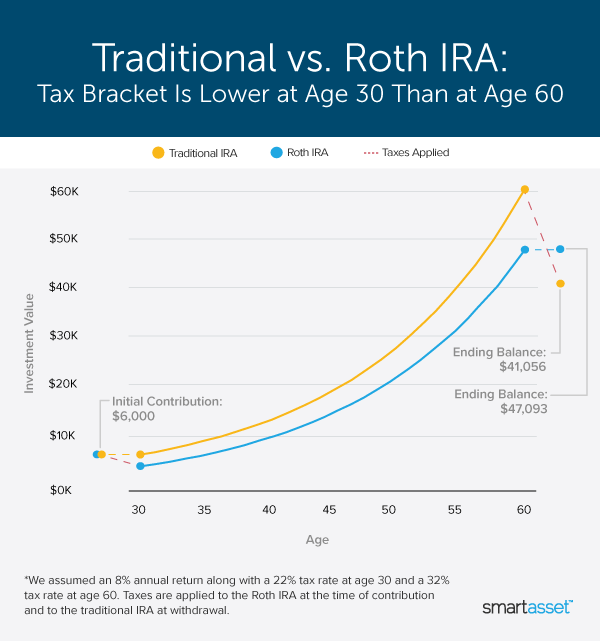qisao.site Are Ira Distributions Taxable After Age 70

Division VI of that legislation excludes retirement income from Iowa taxable income for eligible taxpayers for tax years beginning on or after January 1, Are my withdrawals and distributions taxable? Any deductible Contributions can be made to your Roth. IRA after you reach age 70 ½ and you can leave. After age 59½ and before age 72 (prior to year , this used to be 70½), there are no requirements concerning the size or timing of your IRA withdrawals.
There are no income tax penalties on traditional IRA withdrawals after age 59 1/2. Traditional IRAs are taxed at regular income tax rates. Money in a traditional IRA hasn't been taxed yet, and by requiring RMDs, the government ensures that this cash is not tax-deferred indefinitely. “For the. SEP IRA contributions are tax-deferred, so taxes are only paid when distributions are taken. · Distributions taken before the age of 59 ½ may be subject to an.
IRA distributions are generally included in the recipient's gross income and taxed as ordinary income, other than qualified distributions from a Roth IRA. You can always withdraw contributions from your Roth IRA without penalty or taxes at any age. However, you will be taxed on the earnings from your Roth if you. As for your IRA, you won't owe any income tax as long as you leave your money in a traditional IRA until you reach another key age milestone. Once you reach age.
Your withdrawals from a Roth IRA are tax free as long as you are 59 ½ or older and your account is at least five years old. Withdrawals from traditional.Traditional IRA, then pay taxes on the distributions during retire- ment (age 70 1/2) or % (age 72). Will these withdrawals push a portion of.Although withdrawals are taxed the year you make them, there are no additional penalties if you're at least 59½ or use the funds for a qualified purpose.
In general, QCDs must be reduced by deductible IRA contributions made for the year you reach age 70½ or later. Penalties: If you wait until you're at least age 59 1/2, you won't pay the 10% early withdrawal penalty on your IRA withdrawals. Taxes: If you claimed a. You must take your first required minimum distribution for the year in which you reach age 72 (73 if you reach age 72 after Dec. 31, ). However, you can. After you reach age 73, the IRS generally requires you to withdraw an RMD annually from your tax-advantaged retirement accounts (excluding Roth IRAs, and Roth.
SEP IRA contributions are tax-deferred, so taxes are only paid when distributions are taken. · Distributions taken before the age of 59 ½ may be subject to an. IRA Deduction. SECURE Act repeal of maximum age 70½. The SECURE Your IRA distribution is fully taxable if your IRA contributions were fully deductible. Contributions are not tax deductible. • Withdrawals are generally not taxable after a taxpayer reaches retirement age and retires. • Payments employers make for. Retirement plans are designed so that you can use the money when you reach retirement. For this reason, rules restrict you from taking distributions before age. Illinois does not tax the amount of any federally taxed portion (not the a traditional IRA that has been converted to a Roth IRA;; the redemption of.
You can withdraw money any time after age 59½, but you'll need to pay income taxes on part or all of any IRA withdrawals you make. Step. 3. Savings growth vs. Taxes on IRAs and (k)s. Once you start taking out income from a traditional IRA, you owe tax on the earnings portion of those withdrawals at your regular. "A Roth IRA or Roth (k) can help you save on taxes in retirement. Not only are withdrawals potentially tax-free,2 they won't impact the taxation of your. People who are age 70 ½ or older can contribute up to $, from their IRA directly to a charity and avoid paying income taxes on the distribution. This.